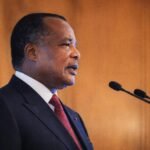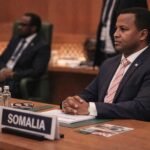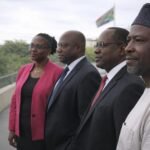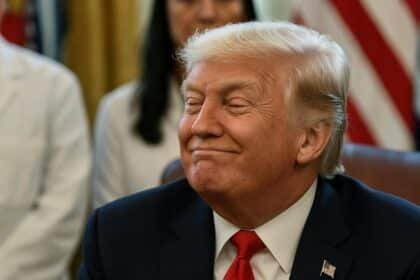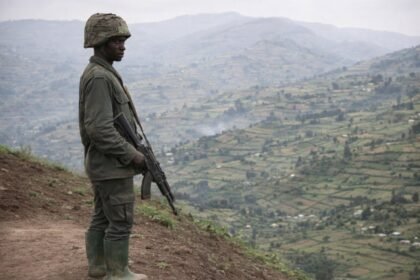By deciding on 5 June 2025 to suspend visa issuance to U.S. citizens sine die, transitional President Mahamat Idriss Déby Itno opted for unvarnished reciprocity after the American proclamation that placed Chad among twelve nations now barred from U.S. territory. Rare in African diplomacy, the move signals the exasperation of a Sahelian partner long considered a linchpin of Washington’s security strategy.
An unexpected act of reciprocity
“Chad may have no squadrons to deploy or billions to dispense, but it has its dignity” the head of state declared on his official account, invoking the principle of sovereign equality. Carried by several North-American agencies, N’Djamena’s response is the first formal counter-measure by an African state to Donald Trump’s new travel ban, a text whose political reach extends far beyond mere border control).
Washington’s security doctrine under fire
In its 4 June proclamation, the White House justifies the exclusion of the twelve states by citing “unacceptable visa-overstay rates” — 49.54 per cent for Chad’s B1/B2 visas, according to the Fiscal Year 2023 Overstay Report (White House, 4 June 2025). The document also references the terrorist threat revived by the Boulder, Colorado attack. Yet constitutional scholars such as Stephen Vladeck argue that, despite a more sophisticated legal veneer than in 2017, the measure remains vulnerable under fundamental-rights scrutiny and existing Supreme Court jurisprudence.
The African Union raises its voice
Three days after the U.S. proclamation, the African Union Commission issued an unusually forthright communiqué urging Washington to adopt “a genuinely consultative approach” to safeguard the academic and commercial exchanges painstakingly woven since the Cold War’s end. Of the twelve targeted states, seven are African — Chad, Republic of the Congo, Equatorial Guinea, Eritrea, Libya, Somalia and Sudan — giving the U.S. decision formidable symbolic weight on a continent where mobility remains profoundly political.
Diplomatic and economic fallout for N’Djamena
Closing the Chadian consular window to Americans will first burden the small cluster of oil and service companies operating in Kome and the Logone Basin. Executives and engineers must now solicit visas from third-country embassies, lengthening delays and inflating costs. In the medium term, N’Djamena’s treasury may see royalties and foreign direct investment erode, while Washington risks losing a strategic ally in the running battle against Sahelian jihadist groups — Chad still hosts a joint intelligence site established in 2013 (Reuters, 5 June 2025).
Domino effect or isolated flourish?
Brazzaville has hinted it will pursue “the diplomatic route” to secure its removal from the list, yet other African capitals are weighing mirror measures. Any contagion will depend on Washington’s ability to negotiate bilateral “improvement plans” for biometric-passport management and counter-terror intelligence sharing, a mechanism already tested — with limited success — in 2019.
A juridical and symbolic precedent
The standoff recalls the 2017 crisis when the first wave of bans on Muslim-majority countries provoked limited retaliations from states such as Iran and Libya. This time, the Trump administration appears to have anticipated litigation by carving out exemptions for permanent residents, medical emergencies and sporting delegations, thereby complicating challenges before federal courts
Beyond overstay statistics and security arguments, reciprocal visa suspensions reveal a latent crisis of confidence between the United States and a continent intent on asserting its voice in the world order. For N’Djamena, retaliation is both a declaration of sovereignty and a risky wager in an asymmetric power contest. For Washington, it underscores the erosion of a once-assumed irresistible soft power. In the medium term, realpolitik — energy supplies, counter-terror cooperation and trans-Saharan migration issues — will likely compel both capitals to resume pragmatic dialogue. The question is which side will blink first, as the fault lines of American foreign policy are redrawn in the Sahel and beyond.





